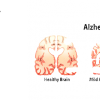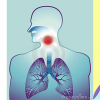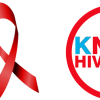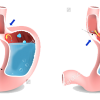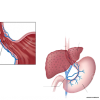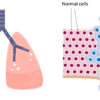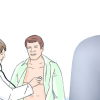Tag: brain , esophagus , head , painful swallowing , pharynx , weight loss
-
Difficulty swallowing (Dysphagia)
Dysphagia is the inability or difficulty in swallowing food or liquid. Normally, muscles in the throat (pharynx) and esophagus (food pipe) contract rhythmically to move food and liquids from mouth to stomach. Dysphagia occurs when there is a narrowing or lack of coordination of movem
-
Alzheimer’s Disease
Alzheimer’s disease is a disorder of brain function where you experience a gradual and progressive decline in your memory along with other intellectual function of the brain. The rate with which the disease progresses varies between people to people. They also develop problems related to thinking, social behavior
-
Lung Cancer
Lung cancer (Bronchogenic carcinoma) is the most common type of cancer worldwide and a leading cause of cancer death for both men and women. Lung cancer occurs when the normal cells of lungs abnormally change their characteristics and grow uncontrollably. Lung cancers may be
-
Neck Swelling
Any abnormal enlargement of structures between chin and clavicle bones can cause a neck swelling. Neck swelling usually occurs as a result of disease of lymph nodes in the neck or thyroid gland. Sometimes salivary glands and diseases of muscle and skin around neck may produce a swelling. A neck swelling from enlarg
-
Tuberculosis
Tuberculosis (TB) is a communicable disease caused by Mycobacterium tuberculosis. It can affect any organ in the body but lungs (Pulmonary TB) are the most common site of infection. Other common sites of infection are bones, lymph nodes, kidneys, uterus, brain (meninges), skin, etc. Tuberculosis i
-
Weight Loss
Weight loss that is meaningful clinically (in relation to your disease) is the loss of more than 5% of usual body weight over a six-month period. This arbitrary cut-off needs to be considered carefully as this does not tell about whether the given weight loss is due to loss of body fat (
-
Sore Throat
Sore throat (Pharyngitis & Tonsillitis) refers to pain, irritation or itchiness of the throat resulting from inflammation of the lining of throat and tonsils. It is common infection in children, but can affect people of any age. Symptoms include dryness of throat, swollen glands in
-
Headache
Headache Headache is pain felt in any region of the head upto upper part of the neck . Brain itself is pain insensitive, but surrounding structures like coverings of brain, arteries and muscles are pain sensitive. Stimulation of these pain sensitive areas from inflammation and
-
Vomiting of blood (Hematemesis)
Hematemesis refers to the presence of blood in your vomit or vomiting of pure blood that originates in upper part of your gastrointestinal tract. It needs to be differentiated from spitting blood mixed saliva which arises from teeth, mouth and throat. It also need to be differentiated
-
Coughing up Blood
Coughing up blood can be alarming, even in small amounts. But not all hemoptysis is serious or life-threatening. The blood may be mixed with the sputum or it could be frank blood which could be bright red, dark brown or pink and frothy. When you cough up blood, most of the time it is c
-
Rabies
Rabies is a viral disease of mammals affecting the brain and the nervous system. It is transmitted to humans by the bite of a rabid animal. From the site of the bite, the virus travels via nerves to the brain. Then it spreads to other organs including, salivary gland and is shed in saliv
-
HIV/AIDS
Introduction HIV (Human Immunodeficiency Virus) is the virus that causes AIDS (Acquired Immunodeficiency Syndrome). Infection by HIV weakens your immune system. When the immune system becomes too weak to fight, organisms that would otherwise not cause an infection in a normal person, that person is
-
Diabetes Mellitus
Diabetes Mellitus (commonly called diabetes) is a chronic disease where your blood sugar levels are persistently high. There is an important hormone called insulin in our body that keeps the blood glucose level within normal range. Insulin is produced by pancreas which is a gland located behind the stomach between the
-
Gasteroesophageal Reflux Disease
Gasteroesophageal reflux disease (GERD) is also known as acid reflux. GERD occurs is when stomach contents leak backwards (called “reflux”) into esophagus and cause symptoms or complications. Reflux is a normal process in infant, child or adult, but when it causes troublesome s
-
Esophageal Varices
Esophageal varices are abnormally swollen veins in the lining of the lower esophagus. Most of the time, esophageal varices develop due to obstruction in the portal venous circulation (blood flow through the liver) but mainly it occurs when a healt
-
Autism Spectrum Disorder (ASD)
Autism Spectrum Disorder (ASD) is a disorder of brain development that impairs child’s ability to communicate and interact with others. Children with this disorder have poor social communication, social interaction skills and have limited set of interest and activities. These chi
-
Cancer
Cancer is a disease of abnormal cell proliferation. In a healthy organs, cells divide and grow in a regulated and controlled fashion. When these cell start to divide and grow unpredictably and uncontrollably, it develops into a lump know as tumor. These groups of abnormal cell can infiltrate causing destruction of surr
-
Acid Reflux Disease
When we eat food, it travels through the mouth to the food pipe (esophagus) and then to the stomach. Once in the stomach, food cannot come back up into the esophagus under normal conditions because of the presence of the lower esophageal sphincter (LES). LES is a group of fiber muscle rings at the lower end of the food
-
Stroke
Stroke is a medical emergency. It occurs when the blood supply to the brain is severely compromised or suddenly cut off. As a result, the brain cells begin to die due to the lack of oxygen and nutrients. A permanent damage can result if blood flow is not restored promptly. If the blood
-
Sinusitis
Sinusitis refers to the inflammation and swelling of the sinuses. Sinuses are cavities found in the bones of our face. There are four sinuses and are located around the nasal passages. These cavities communicate with the nasal passage via four narrow openings. These openings drain the



